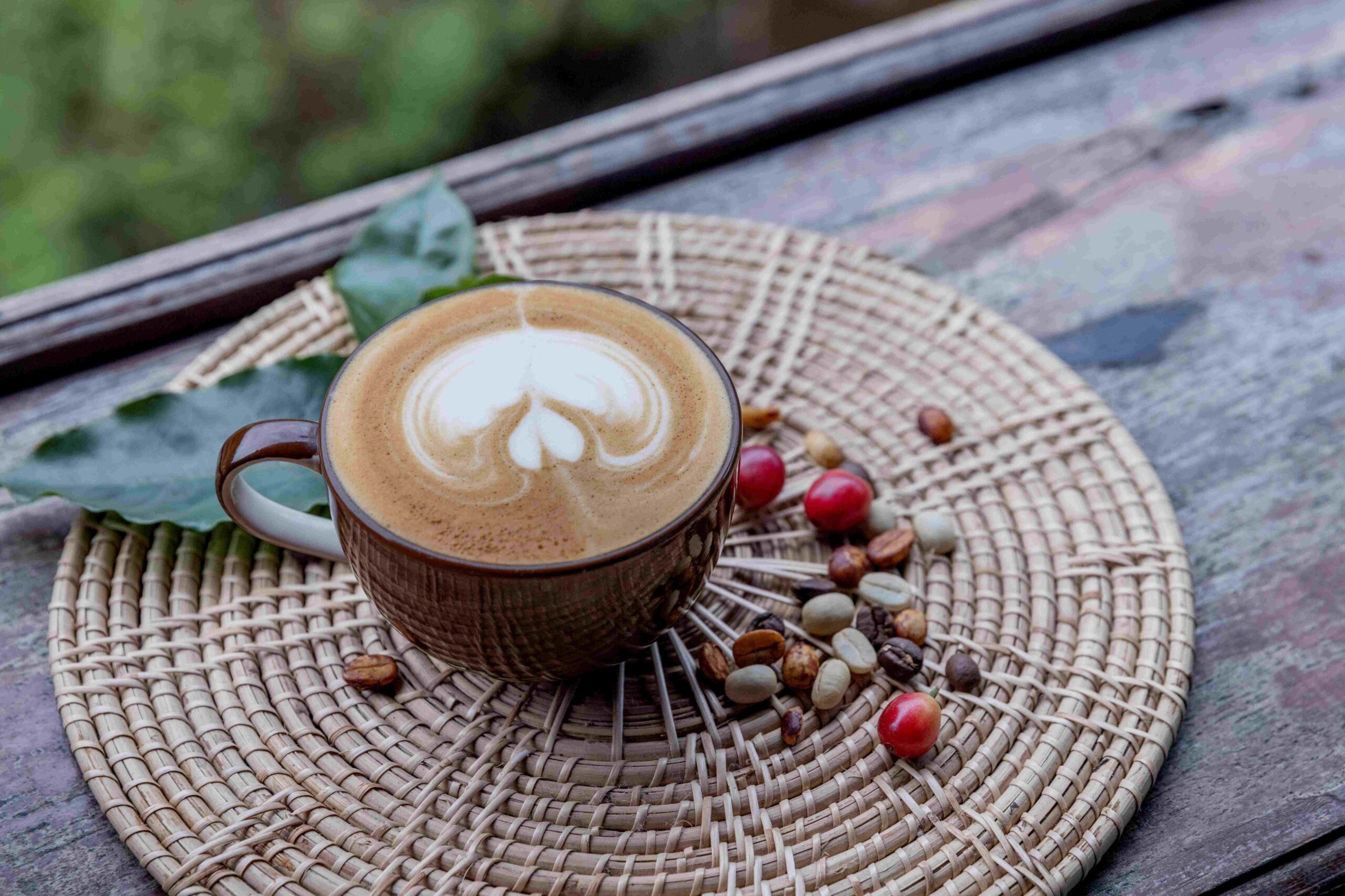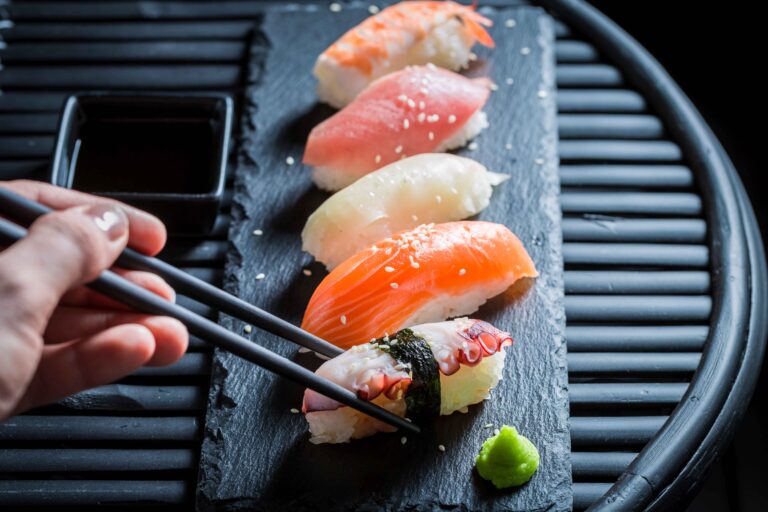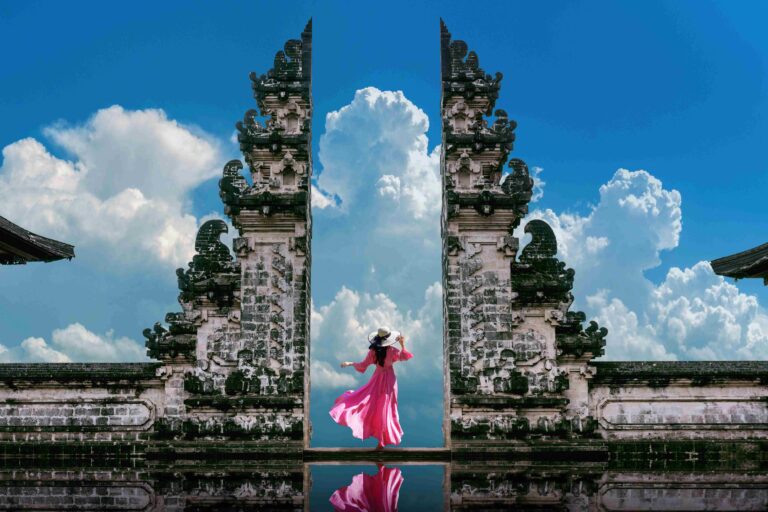If you’re a coffee lover, you’re going to find the distinct taste of high quality beans in Bali difficult to resist.
The low acidity and perfect balance of arabica and robusta can create a caffeine hit quite unlike any other.
Of course, you also need to ensure that the right brewing methods and processing methods have been used on your coffee if you want the best cup that Bali has to offer and our guide will help you choose the perfect beans for your next coffee on the island.
A Brief History Of Coffee In Bali
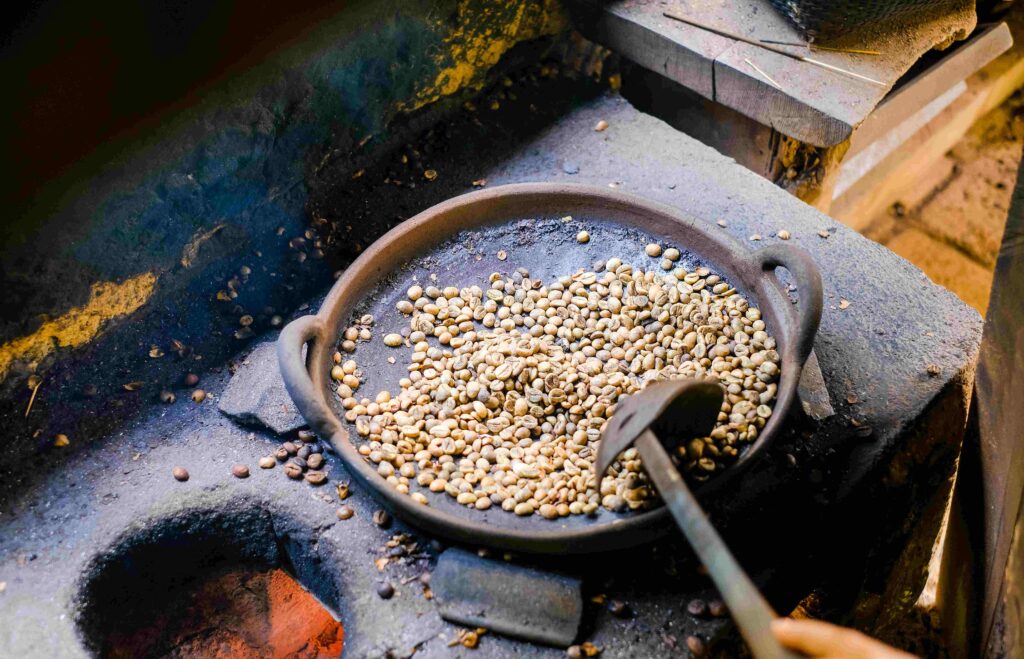
It’s worth noting that while coffee is not native to Bali, its coffee culture is long-established and unlike in most parts of Indonesia, where coffee growing was forced on the locals by the Dutch colonizers. the different regions of Bali began growing coffee beans when they were introduced by merchants from neighbouring Lombok.
The first coffee plants here were planted in the early 20th century in the Kintamani Highlands and it’s thought that the volcanic soil combined with the hot, humid climate provides ideal conditions for coffee to thrive.
Interestingly, the dominant form of Balinese coffee is not the Arabica coffee that you may be used to back home, but rather robusta coffee.
This coffee plant is very resistant to the diseases that can impact plant growth and it contains an unusually high level of caffeine when compared to Arabica Coffee.
Coffee lovers will find that the taste of Balinese coffee is very distinct for this reason and that distinct taste is memorable and pleasant.
Coffee Growing In Bali Today
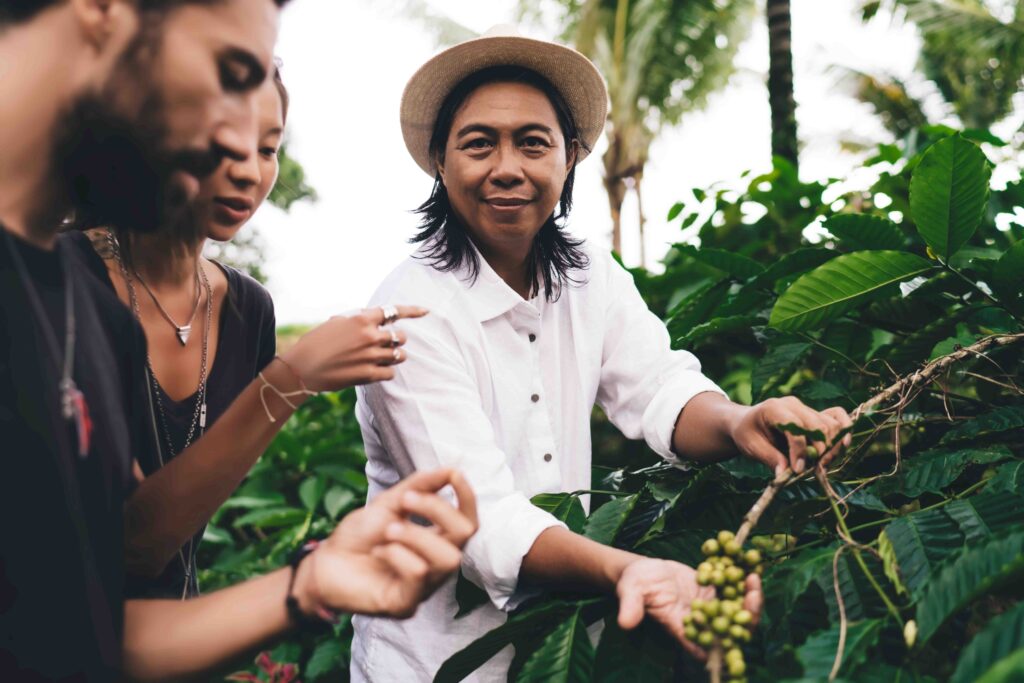
The Kintamani Highlands are still one of the main centres of coffee growing here in Bali and robusta continues to dominate in single origin Balinese coffees.
However, in the years since coffee was first grown on the island, Arabica coffee has been introduced and become popular, particularly with those seeking an espresso roast.
This is, in part, because Arabica coffee beans fetch a higher price on the international markets.
If you want the best Arabica coffee in Bali, look for the Kintamani Arabica GI (Geographical Indication) certification which guarantees that your Arabica coffee is made from the best coffee beans in Bali.
Interestingly, coffee here in Bali is not a big business owned process and you’ll find most coffee here is grown by small farmers which then organize to sell their products in “subak abians”.
This is a system similar to the subak rice growing system used in Bali’s only UNESCO world heritage site.
This means that Balinese coffee culture is very much based around organic, fairtrade principles as the subak system requires balancing humans, God and the land in the fairest manner possible.
Arabica Coffee Vs Robusta Coffee Beans
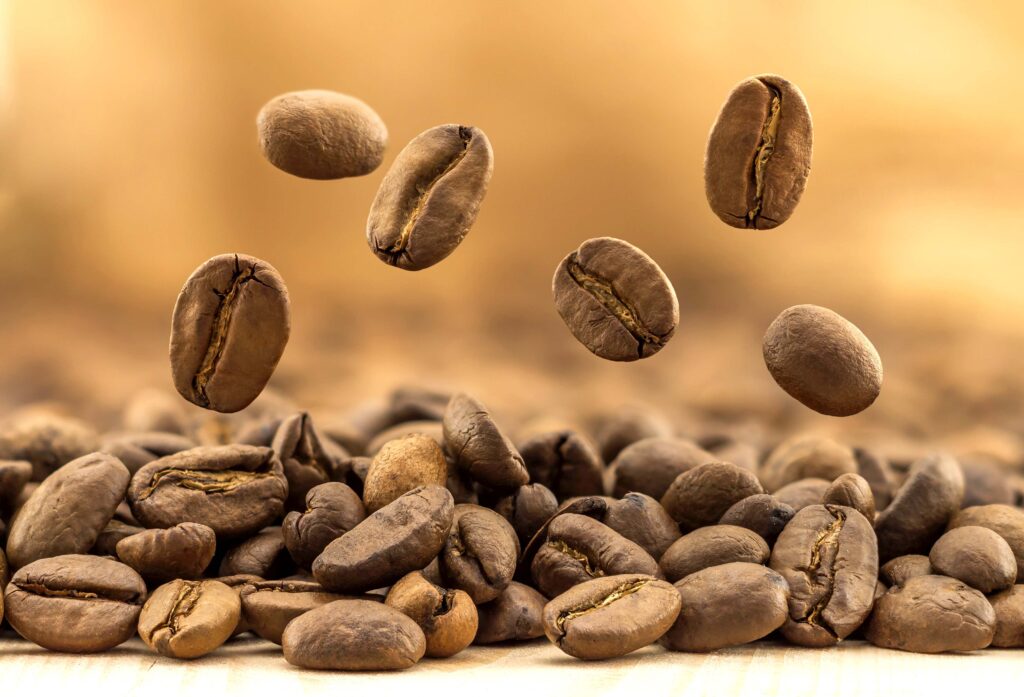
Arabica coffee has a stronger body and less acid than robusta coffee. It’s not better, just
different. However, as many people outside of Bali are more used to Arabica coffee, Balinese coffee is gradually moving away from robusta production to ensure that every coffee lover can find a great cup of coffee from the island.
The Taste Of Balinese Coffee
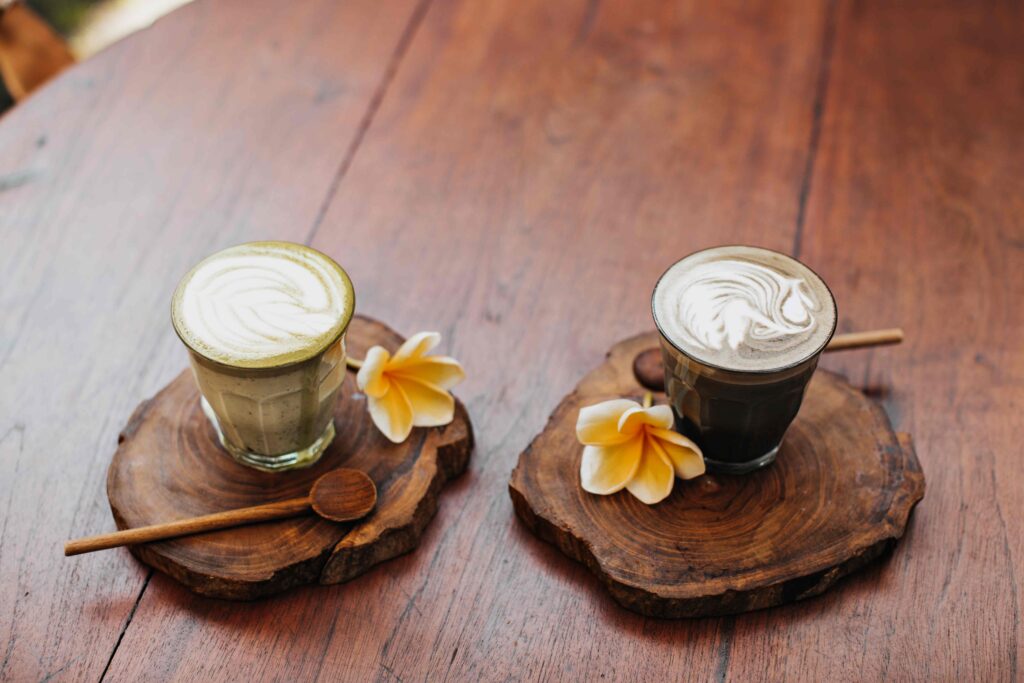
Balinese coffee has its own distinct taste and this is often down to the drying process that is used for the coffee beans.
In Bali, unlike in the rest of Indonesia, they use wet processing where the bean is removed from the coffee fruit before it’s dried. In the rest of the country, the fruit is dried with the bean and then removed.
This makes Balinese coffee more brightly and highly toned than the coffees from other regions of Indonesia.
You can still get the fruit sweetness in the fine brew but it’s very distinct from Javanese or Sumatran coffees.
How To Make The Best Cup Of Coffee In Bali
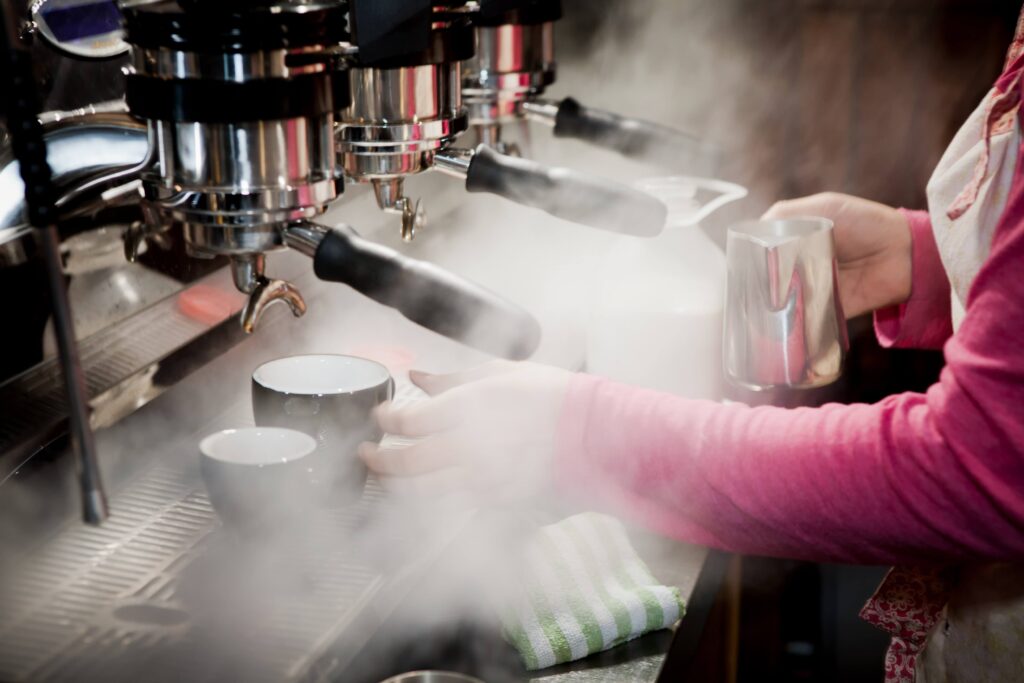
We recommend going with single origin Balinese coffee, but it’s fine to use a blend, particularly if you want some Arabica coffee mixed in with your robusta.
It’s fine to roast the beans in advance, but it’s best to keep the grinding until just before the brewing process begins as it helps to keep the coffee tasting fresh and bright.
A fine grind releases the most strength into the water when you brew, but you may find that if prepared correctly that you prefer a coarse grind’s final output.
Different Balinese Coffee Species
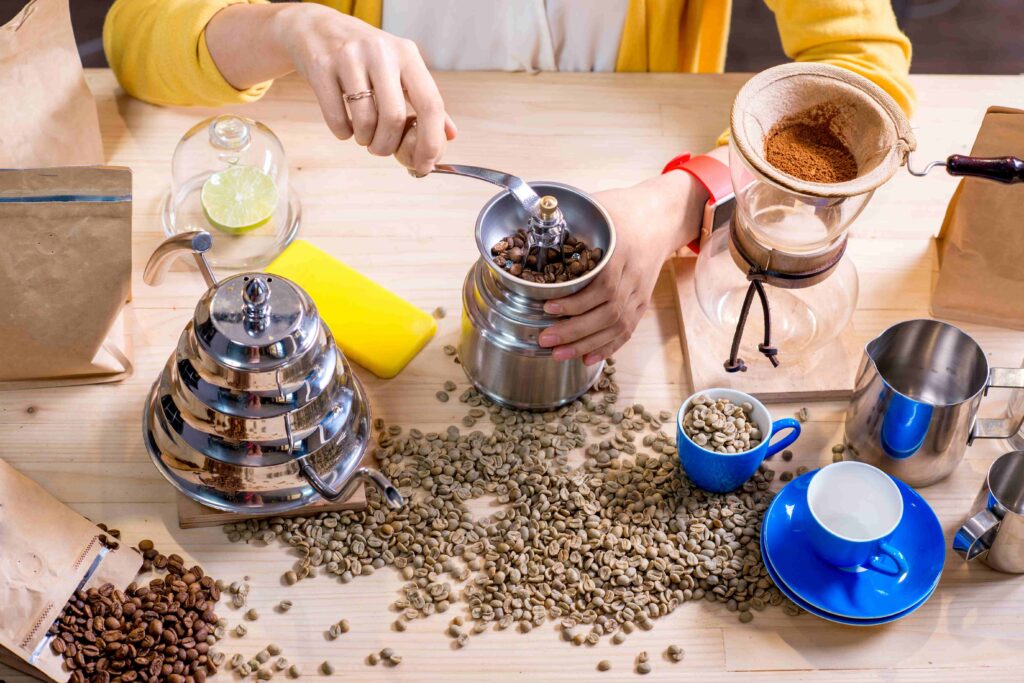
There are many different tupes of beans available in the coffee shops and coffee plantations of Bali and these include:
Kintamani Coffee (From the Kintamani Highlands)
The earliest and most original Balinese coffee is a robusta coffee from Kintamani. The area is fabulous for growing beans and you will find that the heat and humidity in conjunction with the rich volcanic ash soil produces very good Balinese coffee, indeed.
Many of the farms in this region are transitioning to fully organic and sustainable growing techniques and it’s worth paying a little extra for ethically grown Balinese coffee.
Cascara Coffee
Cascara is a form of Balinese coffee which has fruit that is extraordinarily red at maturity. It requires a serious amount of labour to cultivate and dry this coffee and you’ll find there aren’t many coffee beans available because of this.
Expect to pay premium prices but if you can secure some cascara coffee, you’ll find that the taste is entirely worth it. Any cascara you find here in Bali is guaranteed to be grown organically.
Plaga Coffee (A Female Empowerment Coffee)
This is an excellent local coffee that is grown by a collective of women farmers and all the output is 100% organic.
The ladies of the farm are empowered by selling their harvest through a Direct Trade process which means that they recieve a constant steady income and are able to support their families entirely through the proceeds of their Balinese coffee.
This is a very strange coffee because the coffee beans are all single seeds extracted from a coffee fruit, rather than the usual pair of seeds that occur in most berries.
This, of course, attracts a slightly premium pricing but it’s worth it and the taste is very much smoother than the usual Arabica coffee that you get back home.
Wamena Coffee
This is one of our favourite coffees as the end product is thick and almost chocolately in nature. It makes a great espresso and can be used in plenty of other brewing methods.
You can even find hnts of cinnamon and honey in the taste. Don’t miss out on this one.
Sidikalang Coffee
This is a fantastic coffee that is fully roasted and accents on the acidic side of things. It’s almost spicy in its bouquet and there’s a touch of caramel to the finished product.
A Quick Note On Kopi Luwak
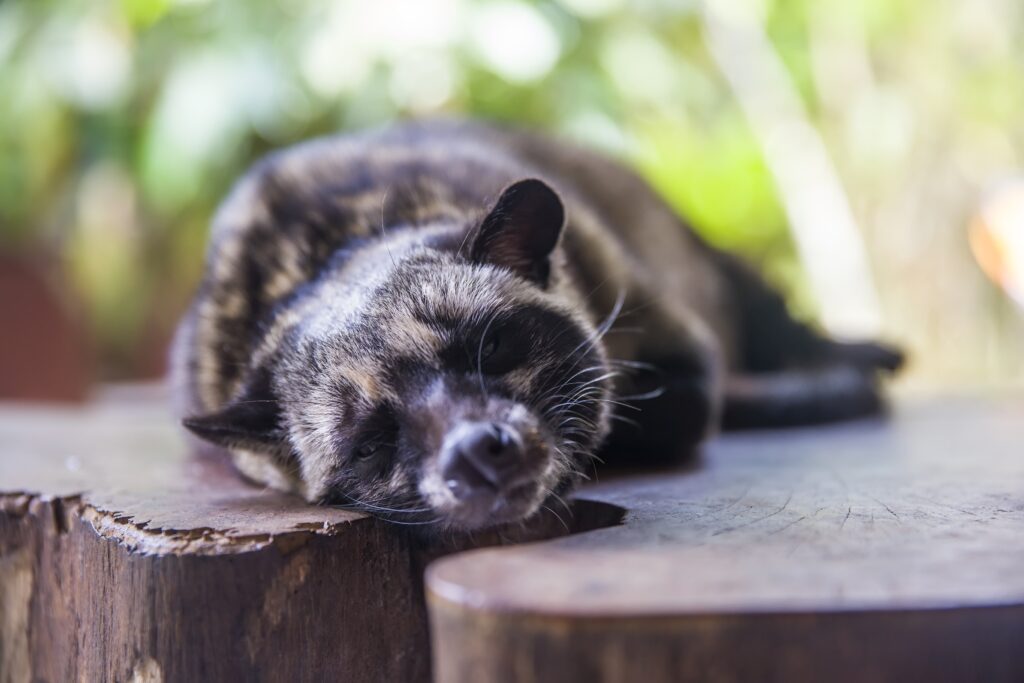
We can’t really talk about coffee in Bali without mentioning Kopi Luwak or “civet coffee”.
This is a form of robusta coffee (though it could, in theory, also be made as an Arabica coffee) where the unique taste is derived from the fact that the coffee fruit was consumed by a civet cat and then the bean was pooped back out.
Unfortunately, demand for this kind of coffee has far outstripped supply and what was once a natural process, has become an unpleasant form of farming where the cats are captured, caged and then force fed coffee beans.
So, we’d encourage you to only buy Kopi Luwak if you’re 100% certain that it doesn’t come from farmed civets.
FAQs
Do They Drink Coffee In Bali?
Yes! In fact, coffee drinking is very popular in Bali and across Indonesia as a whole.
What Is Special About Bali Coffee?
The taste of coffee in Bali is influenced by the process by which the beans are dried and this process is different from elsewhere in Indonesia.
What Is The Special Coffee In Bali? What Coffee Is A Delicacy In Bali?
Kopi Luwak is the “delicacy”. It’s a form of coffee with complexity due to the fact that the bean has been partially digested by a civet cat. Sadly, this coffee is also linked to animal cruelty (see above).
What Animal Makes The Best Coffee In Bali?
Only one animal helps to make coffee in Bali, the palm civet cat.
Why Is Kopi Luwak Coffee So Expensive?
The price is demand driven. There aren’t enough palm civet cats out there eating coffee fruits and then pooping out beans. Thus, the price is high.
What Does Kopi Mean In Bali?
Kopi is the Indonesian word for coffee.
How Do They Drink Coffee In Bali?
The coffee in Bali was traditionally served sweet and strong with a lot of condensed milk. However, today, there are an endless number of coffee shops in Bali serving great coffee in any way that you like it.
Why Does Balinese Coffee Taste So Nice?
It’s the robusta beans that are a little less punchy than the arabica beans that you’re probably used to.
Is Coffee From Bali Good?
Yes! Balinese coffee is very good and the taste is something that coffee lovers from around the world seek out.
Where Do I Drink The Best Cup Of Coffee In Bali?
FINNS, the world’s best beach club, has put a great deal of effort into sourcing the best beans in Bali and you can enjoy a cup of coffee as you watch the world’s greatest sunset from one of our super comfy daybeds.
Final Thoughts On Balinese Coffee Culture
If you spend time in Bali, you’re going to want to try some Balinese coffee at some point or another and you’ll be pleased to learn that the coffee here is very godo.
There’s a roastery within a few miles of almost every hotel and a wide variety of local beans to choose from too.
Of course, if you prefer your coffee to be prepared for you, you can always come to FINNS and try our awesome Balinese coffee.

